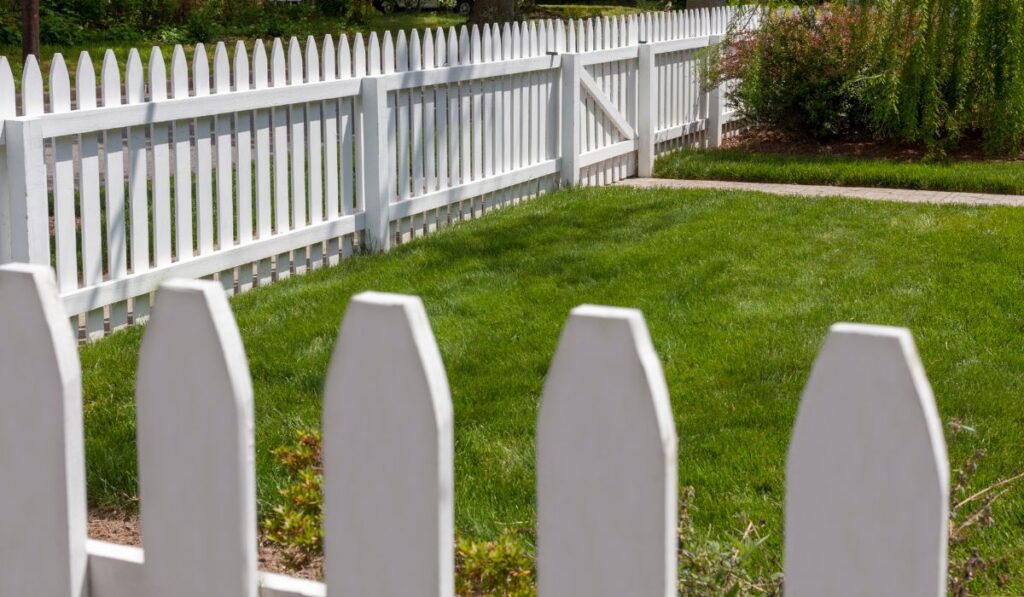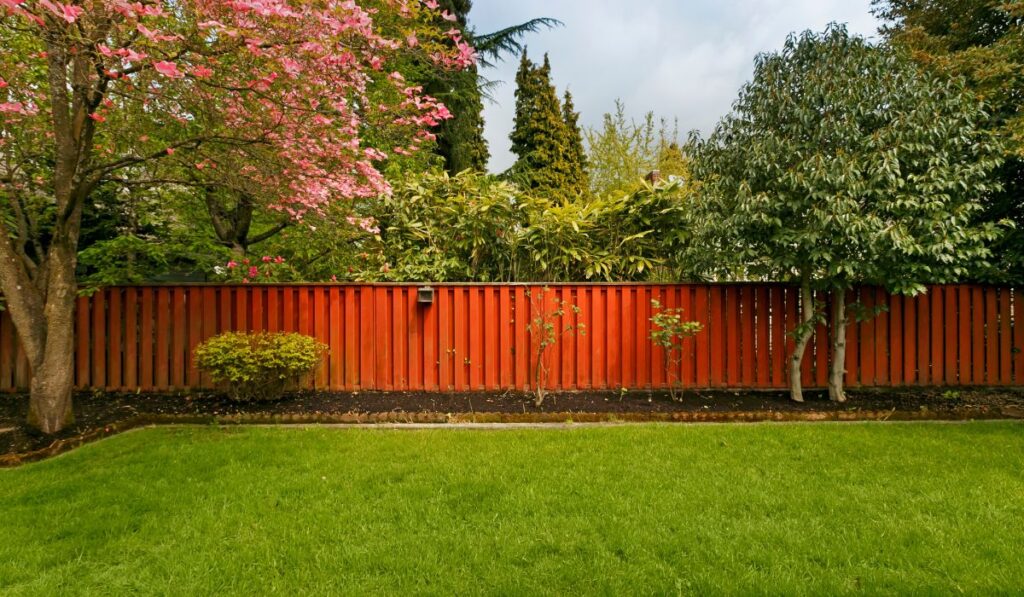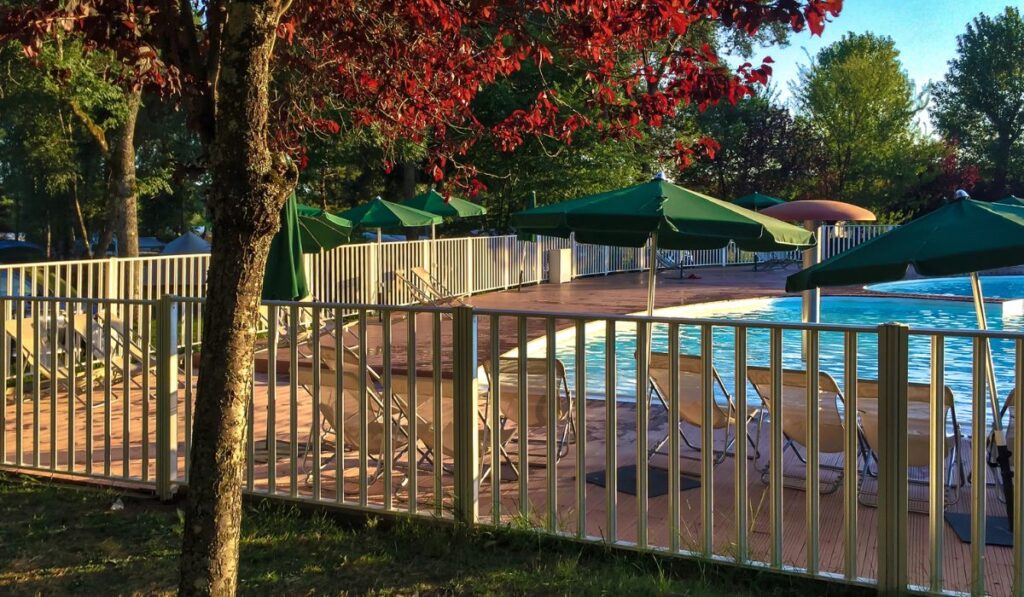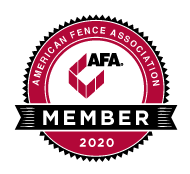Building a fence is just the beginning of your fence-owning journey. At Bravo Fence, we install great fences that are meant to last. But just like your car or home, a little maintenance goes a long way toward protecting your investment for the long haul. Of course, how much maintenance you are willing to put in varies from homeowner to homeowner. Some materials require a little more care, while others need almost none. Your maintenance requirements will vary depending on the material and look you want for your new fence. But some homeowners wish for a wall they can mostly forget about. So the question becomes, is there such a thing as a maintenance-free fence? Read on to determine how much maintenance your wall might need and whether you can achieve the holy grail of the zero-maintenance fence.
Traditional Wood Privacy Fences
There is nothing more traditional than a wooden privacy fence around your backyard. So it’s no surprise that it is one of the most common fences we install. Wooden privacy fences offer a lot of benefits. A wooden wall is a symbol of suburban living. It provides privacy for your family to relax in the yard, free from prying eyes. It keeps pets and children safe and blocks unwanted views. A wooden privacy fence can block out noise, whether it’s from neighbors or a nearby road. But they also require a fair amount of maintenance.
Maintaining a Wood Fence
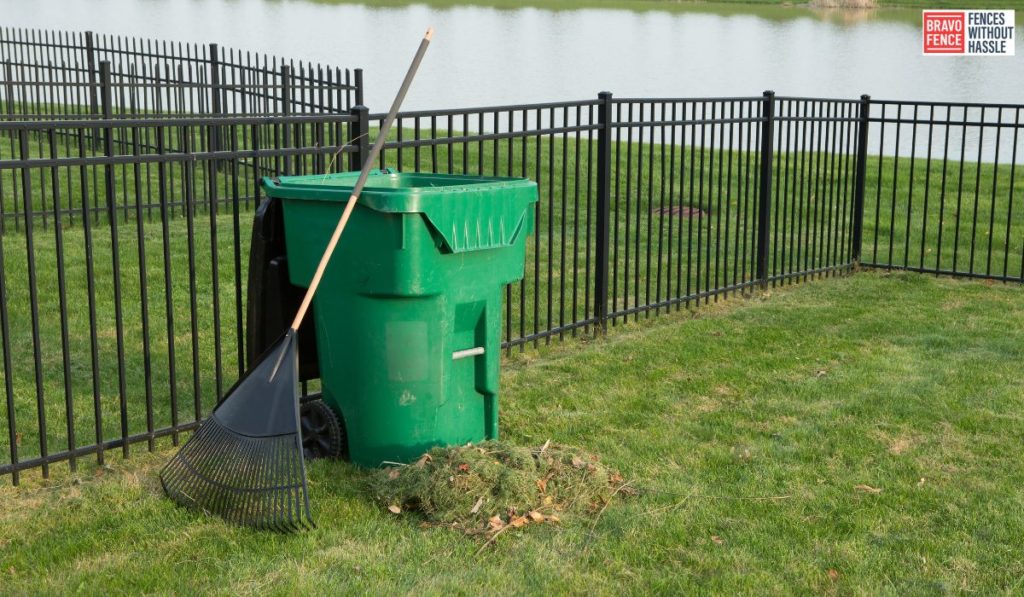
Maintaining a wooden privacy fence starts with proper installation. Setting the posts in secure footings will keep them from rotting in the ground. But the most critical part of the installation, as far as maintenance is concerned, is how you seal your fence. The two primary methods for filling your wall are painting or staining it. Paint will seal your border for a few years, though it is prone to peeling and bubbling. The color needs to be refreshed every few years. Stain works differently. Whereas paint sits on the surface, stain penetrates the wood. Lacquer can be primarily clear, providing a new color to the wood but preserving the grain. Or it can be opaque, creating a similar look to paint. It doesn’t peel or bubble because it is absorbed into the wood. But it still needs to be refreshed every few years.
In addition to sealing your fence, wooden fences are plagued by weather and insects. As a natural material, wood can host infestations or termites, carpenter ants, or carpenter bees. It can also rot, grow moldy, or bleached by the sun. Regular staining or painting helps prevent such deterioration, but there’s no magic bullet. Wooden privacy fences require routine inspection for rot, infestation, cracking, and holes. It is not a maintenance-free fence, but your wooden fence could last decades if you keep up with the maintenance.
Ornamental Metal Fences
For pure sophistication and elegance, nothing beats an ornamental metal fence. The first metal fences were made of wrought iron, but today almost no borders are made that way. Instead, modern decorative metal fences are almost always steel or aluminum. Steel offers more strength than aluminum. However, aluminum can offer a lower-maintenance option.
Steel Requires Some Maintenance
The main concern with a steel fence is rust. Steel contains iron, which makes it prone to rust. However, modern treatment techniques can minimize the risk. Covering the metal with a special coating is the most effective process that reduces rust. The layer starts as a powder and is baked onto the metal, forming a tight seal that removes rust. After the coating, steel fences are often painted for another layer of protection. The metal is only exposed to the air when the coating is penetrated. This can happen through weather and wear over the years or if the fence is dented.
To avoid rust problems, walk the length of your ornamental steel fence at least once a year to inspect for any breaches of the paint and coating carefully. It is easy to treat if you notice any breaks in the coating or rust. If you are handy, you can do it yourself. Or, if you favor, you can hire someone. To do it yourself:
- Use a sander to remove any peeled or bubbled paint and remove the coating to the bare metal.
- Fill in the rusted area with a filler you might find at a hardware store or auto body shop.
- Apply an anti-rust treatment, then reapply new paint to match the rest of the fence.
Aluminum is Almost a Maintenance-Free Fence
Aluminum, unlike steel, does not contain any iron, so it cannot technically rust. However, it is subject to some corrosion. Aluminum is treated similarly to steel, with a powder coating and sometimes a layer of paint. The coating keeps the aluminum nearly 100% corrosion-free. However, some corrosion can form if the fence is dented or the coating penetrates. Unlike steel, the breakdown on an aluminum fence is not rust; it can create a protective coating to prevent further damage. However, aluminum is also less sturdy than steel and more prone to minor dents and other damage that can affect the layer. Doing an annual inspection as you would with a steel fence is an excellent idea. You will unlikely find much damage, but treating any damage right away will protect your wall over time.
Vinyl Fences are Nearly Maintenance-Free
When it comes to low maintenance, almost nothing beats vinyl. Vinyl has the advantage of being a human-made material that is not subject to insects, rot, or rust. This makes vinyl an incredibly hardy and almost maintenance-free fence material. One of the critical properties of vinyl that makes it so hard-wearing is that it is not painted. Instead, the material itself is colored. A dent or scratch will not reveal any underlying color because the entire fence is your chosen color. Also, vinyl—which is plastic—will not fade or rot. However, it can become brittle and crack over a very long time. Luckily, vinyl comes in manufactured panels that are easy to replace.
The most common maintenance on a vinyl fence is less about longevity and more about looks. Vinyl, like anything you leave outdoors, can become dirty over time. Simple dust, dirt, and mud are easy to wash off with a garden hose. For more stuck-on messes, such as pollen or sap, you may need a power washer, some sudsy water, and a brush. Occasionally, algae or mold can grow on the fence. It doesn’t harm the wall, but washing it off may take some work. Use diluted bleach to kill the algae, then wash it off as usual.
Chain Link is the King of Maintenance-Free Fences
Chain link is so hardy that it could be left alone for decades and require almost no maintenance. That’s why you see chain link fences in public places like parks, commercial or industrial sites, and even on the side of highways. No one is going out to the side of the road to maintain those fences. However, an utterly unmaintained chain link fence can show its age, so a little maintenance can help preserve the beauty of your chain link fence.
Chain link is made of galvanized steel that will hardly ever rust. For a softer look, some homeowners choose vinyl-coated chain links. Whichever style you choose, almost nothing can harm your fence. The only maintenance you need is an occasional spray with a hose to knock off some dirt; even that is optional. So if your number-one priority is installing a maintenance-free fence, hardly anything can beat chain link. And if you’re worried about the look of chain links, we’ve written an entire article about how to dress up chain links for residential use.
If you’re ready for a fence, contact us at Bravo Fence Company. We can install any wall style and help you figure out what kind of maintenance you need.
FAQs
Q: Is it possible to find a maintenance-free fence?
A: While no fence is entirely maintenance-free, options are available that require minimal upkeep.
Q: What is meant by a maintenance-free fence?
A: A maintenance-free fence is a type of fencing that needs little to no regular maintenance, such as painting, staining, or sealing, to maintain its appearance and functionality.
Q: What materials are commonly used for maintenance-free fences?
A: Popular materials for maintenance-free fences include vinyl, aluminum, and composite materials like wood-plastic composites (WPC) or engineered wood.
Q: What are the benefits of a maintenance-free fence?
A: Some advantages include reduced maintenance efforts, resistance to rot, decay, and pests, long lifespan, and retaining its original appearance over time.
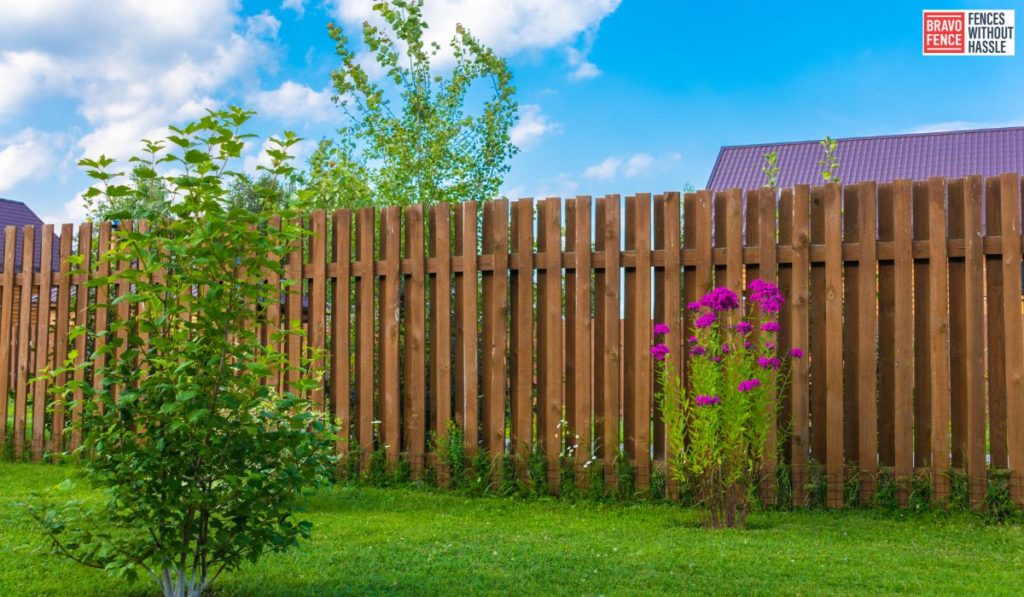
Q: Are maintenance-free fences completely maintenance-free?
A: While they require less maintenance than traditional options, maintenance-free fences may still need occasional cleaning or minor repairs.
Q: How do I clean a maintenance-free fence?
A: Cleaning methods may vary based on the material but typically involve using mild soap, water, & a soft brush & cloth to remove dirt & stains.
Q: Do maintenance-free fences require painting or staining?
A: Maintenance-free fences do not require painting or staining, as they are often manufactured with color-infused materials that retain their appearance.
Q: Are maintenance-free fences more expensive than traditional fences?
A: Maintenance-free fences may have a higher upfront cost than traditional fences, but they can be cost-effective in the long run due to reduced maintenance expenses.
Q: Can maintenance-free fences withstand harsh weather conditions?
A: Yes, many maintenance-free fence materials are designed to withstand various weather conditions, including extreme temperatures, UV rays, and moisture.
Q: How long does a maintenance-free fence typically last?
A: The lifespan of a maintenance-free fence depends on the material used and the level of care taken. Generally, they can last for several decades.
Q: Can I install a maintenance-free fence or hire a professional?
A: The complexity of installation varies with the type of fence. While some maintenance-free fences can be installed as DIY projects, others may require professional assistance.
Q: Can I customize the design of a maintenance-free fence?
A: Yes, maintenance-free fences often offer customization options such as different styles, heights, colors, and accessories to suit individual preferences.
Conclusion
Building a fence is just the beginning of your journey as a fence owner. While Bravo Fence installs durable fences, regular maintenance is crucial to protect your investment. Wood fences require sealing, inspection, and upkeep. Ornamental metal fences need rust prevention and occasional repairs. Vinyl fences are nearly maintenance-free, needing only basic cleaning. Chain link fences require minimal upkeep. Remember, no fence is entirely maintenance-free, but proper care ensures longevity. For professional guidance and installation, contact Bravo Fence Company.

